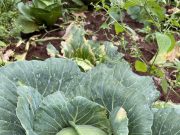African Food Sovereignty: A Matter of Life, Death, and Revival
The African table is set. Not with the hearty, vibrant meals of millet and roasted plantains but with fast food burgers, soda cans, and instant noodles. This tableau of modern convenience, glistening under artificial light, masquerades as a feast but is in reality a raging battleground. The clamor of health crises echoes in hospitals, the lament of farmers resonates in barren fields, and the cry of culinary cultural loss lingers in the air. In this struggle, every sugary bite isn’t just a health hazard; it’s a stake driven into the heart of African identity. The adversary? Processed food. The salvation? Traditional African cuisine.
The Silent Epidemic
Picture this: Over the past 30 years, obesity in Africa has skyrocketed, its rates tripling with each passing decade. The World Health Organization (WHO) sounds the alarm, revealing a stark reality—non-communicable diseases (NCDs) like diabetes, heart disease, and hypertension now claim lives across the continent with unsettling frequency. As of 2021, 24 million Africans grappled with diabetes, a number expected to surge to a staggering 55 million by 2045. The cardiovascular landscape tells a similarly grim story. In 2019 alone, heart disease claimed 1 million African lives. Although precise data for recent years remain elusive, past trends leave little doubt: the toll continues to rise, painting an increasingly dire picture of Africa’s health crisis.
The rise of NCDs parallels Africa’s growing appetite for processed food, a grim irony in a land once synonymous with unprocessed, nutrient-rich meals.
In African markets once predominantly defined by the hum of vendors slicing fresh mangoes or grinding millet, supermarket shelves now groan under the weight of processed food like instant noodles, cornflakes and sugary sodas. Africa’s consumption of processed foods has surged in the last decade, driven by urbanization, shifting lifestyles, and aggressive marketing by global food giants.
In Nigeria, for example, packaged food sales climbed from $8.5 billion in 2010 to $15.8 billion by 2022, a trend mirrored across Kenya, Ghana, and South Africa. The convenience of these products appeals to busy urban dwellers, but their affordability often masks their nutritional emptiness. Meanwhile, traditional diets rich in vegetables, grains, and lean proteins are vanishing, replaced by calorie-dense, ultra-processed options. The result? A silent epidemic, as Africa witnesses a steady rise in obesity and diet-related illnesses, the bitter trade-off for modernity’s quick fixes.
Take a 500ml bottle of soda, shimmering innocently on the shelf. Inside, 55 grams of sugar or 14 tea spoons, more than the daily limit of 50 grams recommended by the World Health Organization. Pair that with sugary cereals for breakfast plus fries loaded with ketchup consumed day after day, and the body’s health architecture begins to crumble: insulin resistance, type 2 diabetes, and heart disease become inevitable milestones on a path paved with refined sugars. Chronic inflammation, a sinister accomplice of sugar, latches onto organs, fueling cancer and even Alzheimer’s. It’s no wonder an African now dies every minute from cancer.
Contrast this with traditional African staples. Millet and sorghum, for instance, whisper a different story. Low-glycemic and packed with nutrients, they sustain energy without hijacking blood sugar levels. Leafy greens like cassava leaves teem with antioxidants, vitamins, and fiber. These are not just ingredients; they are shields, wielded by generations who understood food as medicine.
Mental Health in the Food Equation
The ravages of processed food extend beyond the body, reaching deep into the recesses of the mind. Research from Frontiers in Psychology ties sugar-rich diets to depression and anxiety, with brain inflammation and serotonin disruption as culprits. Mental health, often sidelined in the food debate, finds solace in the communal meals of African tradition. Groundnuts rich in magnesium, fish brimming with omega-3 fatty acids, and the act of breaking bread together fortify not just bodies but bonds. In every shared meal, there’s therapy—an antidote to the isolation and stress that modern life so often imposes.
The Economic and Cultural Cost
But the story of processed food isn’t just about health; it’s about sovereignty. Over 60% of Africa’s food imports are processed products, an uncomfortable statistic that reflects an alarming dependency. These imports weaken local economies, undermine farmers, and reduce the cultivation of indigenous crops. It’s not just a transaction; it’s a cultural forfeiture.
Indigenous African foods like yams and sorghum tell tales of resilience. These crops endure droughts, embrace the climate, and empower local farmers. Every millet seed planted is a declaration of independence, a refusal to bow to foreign corporations that flood markets with cheap, nutrient-poor alternatives. The economics of tradition isn’t just about profit margins; it’s about dignity.
The Role of Policymakers
In this narrative, Africa’s policymakers are protagonists. Subsidizing indigenous crops, taxing processed foods, and promoting traditional meals in schools are not just policies; they’re lifelines. Mexico’s soda tax, which cut consumption by 12% in its first year, offers a template for action. The stakes are high: malnourished children, urban obesity, and economic instability all call for urgent, informed governance.
The Power of Choice
For the African consumer, every choice at the marketplace is a vote. Opt for millet over instant noodles, and you cast a ballot for health and heritage. Select roasted plantains over fries, and you affirm a connection to the land and its rhythms. These choices, seemingly small, are tectonic shifts in the battle for food sovereignty.
Hope on the Horizon
There’s a profound beauty in watching a mother pound yam, her movements a dance passed down through generations. Children laugh around the fire as plantains roast. Farmers harvest millet under a wide, open sky. These are not just snapshots of nostalgia; they are glimpses of a possible future. A future where Africa reclaims its plates, heals its people, and stands tall on the foundation of its traditions.
In the end, the question isn’t just about food. It’s about identity, economy, health, and hope. To reclaim African food is to reclaim Africa itself—one meal, one choice, one bite at a time.

























